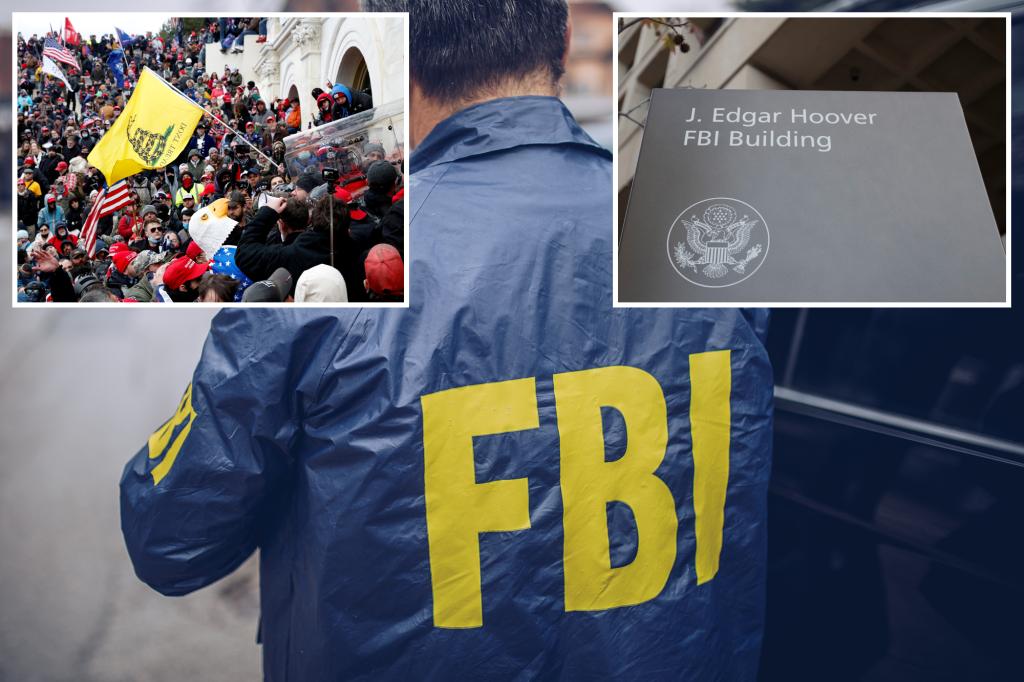The escalating tension between the Department of Justice (DOJ) and the Federal Bureau of Investigation (FBI) reached a new peak following a DOJ request for information on over 5,000 FBI employees involved in investigations related to the January 6th Capitol riot. This request, initiated by Acting Deputy Attorney General Emil Bove, raised immediate concerns regarding the safety and security of the identified FBI personnel and their families, sparking a wave of controversy and legal challenges. While the FBI ultimately complied with the request, reports indicate that the information provided omitted employee names, instead focusing on employee ID numbers, job titles, and their specific roles in the January 6th investigations. This action, however, did little to quell the growing anxieties within the FBI and fueled accusations of potential retaliation against agents involved in investigations targeting former President Trump and his supporters.
The DOJ’s request, as explained by Acting FBI Director Brian Driscoll Jr., was intended to facilitate a review process to determine the necessity of any further personnel actions. This explanation, however, failed to assuage the fears of many within the FBI who viewed the request as a politically motivated attempt to intimidate and potentially purge agents perceived as disloyal to the Trump administration. The timing of the request, coupled with the ongoing investigations into the former president’s conduct, fueled suspicions of a retaliatory motive. The DOJ’s actions quickly drew sharp criticism from FBI agents and their representatives, who argued that such a request exposed agents to unnecessary risks and could severely undermine the bureau’s ability to conduct sensitive investigations without fear of reprisal.
The controversy surrounding the DOJ’s request further escalated with the filing of two separate lawsuits. Nine FBI agents filed a class-action lawsuit alleging that Acting Attorney General James McHenry and other DOJ officials were engaging in retaliatory actions against them. The suit claims that surveys distributed within the DOJ, inquiring about agents’ involvement in cases against Trump and his supporters, were a pretext for potential terminations or other adverse employment actions, such as demotions or denial of career advancement opportunities. This fear of reprisal, the agents argued, created a chilling effect within the bureau, potentially discouraging agents from pursuing investigations with the necessary vigor and impartiality.
In a separate legal action, the FBI Agents Association (FBIAA), along with several anonymous FBI employees, filed for a temporary restraining order against the DOJ. The FBIAA argued that the DOJ’s request, and the potential public disclosure of agents’ involvement in sensitive investigations, posed a grave threat to the safety and security of these individuals and their families. FBIAA President Natalie Bara emphasized the inherent risks faced by FBI agents in their line of duty, protecting the nation from criminals and terrorists, and condemned the DOJ’s actions as reckless and potentially damaging to the bureau’s ability to effectively combat national security threats. The fear of being targeted or retaliated against, she argued, would inevitably create a chilling effect, undermining the morale and operational effectiveness of the FBI.
Both lawsuits raised significant legal and constitutional concerns. The plaintiffs argued that the DOJ’s actions violated the First Amendment rights of FBI agents, infringed upon the Privacy Act of 1974, and disregarded due process protections. The disclosure of agents’ involvement in investigations, particularly those related to politically charged matters, could expose them to harassment, threats, and even violence, chilling their ability to freely exercise their duties and potentially jeopardizing their personal safety. The Privacy Act of 1974, designed to protect the privacy of individuals’ information held by the government, was also cited as grounds for challenging the DOJ’s request. The plaintiffs argued that the DOJ’s actions represented a clear violation of this act, exposing sensitive personal information without proper justification.
The clash between the DOJ and the FBI underscored the delicate balance between government oversight and the need to protect the integrity and independence of law enforcement agencies. The controversy surrounding the DOJ’s request for information raised questions about potential political interference in law enforcement operations and the potential for the misuse of information to target individuals based on their involvement in politically sensitive investigations. The lawsuits filed against the DOJ sought to uphold the rights of FBI agents, protect their safety and security, and preserve the integrity of the investigative process. The outcome of these legal challenges will have significant implications for the future relationship between the DOJ and the FBI, and the broader landscape of law enforcement in the United States.










